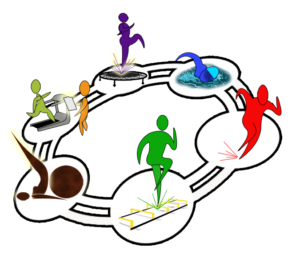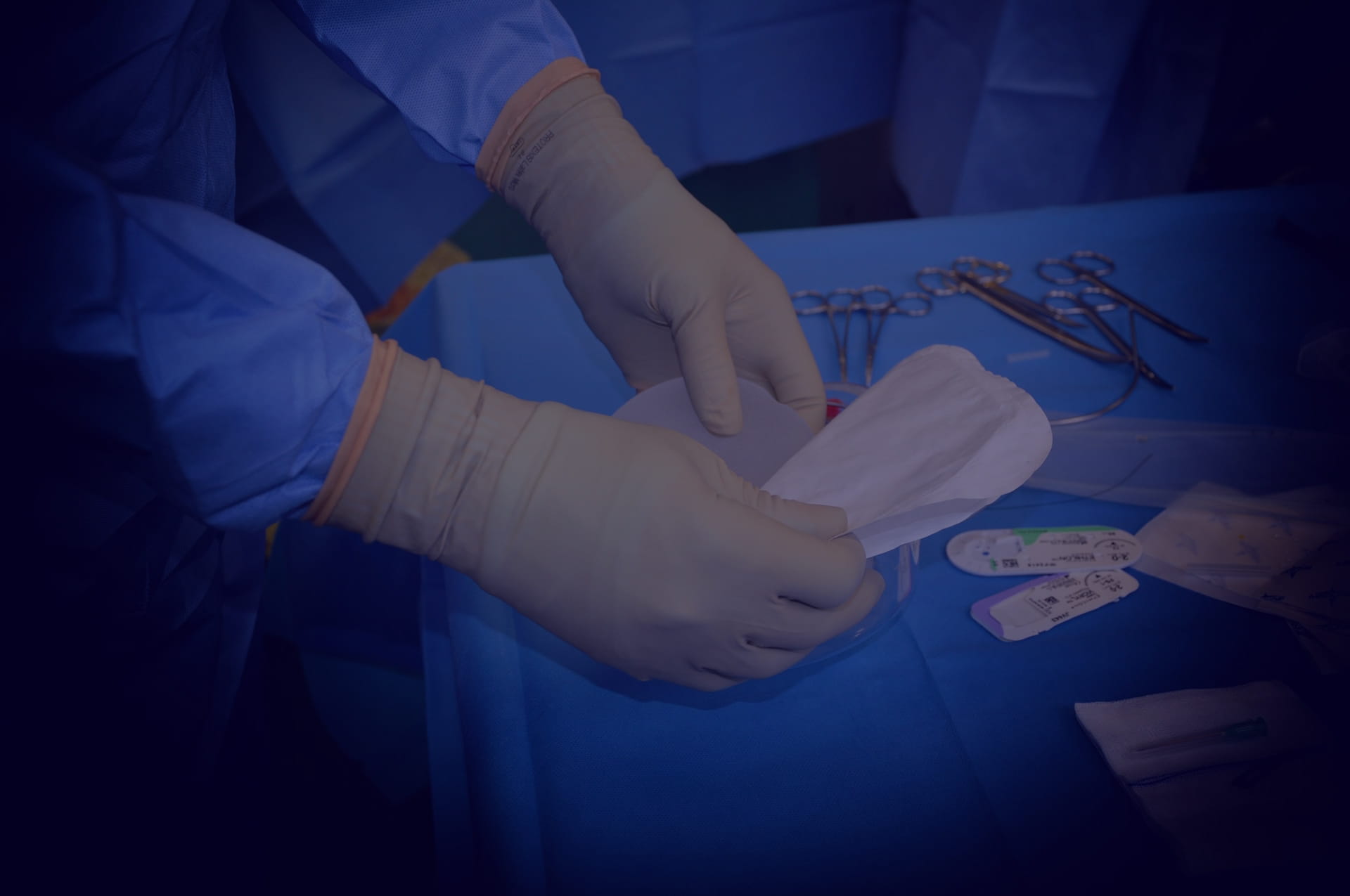This article is an education tool and assistant to you as you embark on this new life of health and should be read carefully and often to ensure you understand the concepts of life after weight loss surgery. It is intended to assist in education and help document your journey.
Remember, each person is different and unique and your weight loss journey will be different from other patients. It is important to follow the advice of your surgeon to ensure you have the best results from your surgery.
The success of bariatric surgery involves the unconditional adherence to the nutritional guidelines that your doctor or dietitian will recommend, these rules gradually culminate with an objective to change your life. The caloric requirements of the patient will depend on the stage at which they are and their energy balance during the day, even so, the patient must focus primarily on foods high in protein.
The pre-operative dietary program will be composed of healthy foods composed mainly of low glycemic index complex carbohydrates, low on fats, and high on protein with a detox phase in which the patient commits to decreasing intake of unhealthy foods, artificial sweeteners, and other similarities. Protein is the most important nutrient for the bariatric patient; any kind of impairment (negligent, medical issue, self-purpose) to achieve the adequate intake of protein will cause malnutrition and will increase the risk of disease.
 Committing to bariatric surgery requires that you prepare ahead of time by eating a healthy diet and ensuring adequate levels of physical activity. Presurgery diet changes are needed to help you lose a percentage of your excess body weight and to learn new eating patterns to help you lose weight after surgery and keep it off. Following the nutritional recommendations may help you demonstrate that you are able to make a commitment to the changes you will need to continue to follow lifelong.
Committing to bariatric surgery requires that you prepare ahead of time by eating a healthy diet and ensuring adequate levels of physical activity. Presurgery diet changes are needed to help you lose a percentage of your excess body weight and to learn new eating patterns to help you lose weight after surgery and keep it off. Following the nutritional recommendations may help you demonstrate that you are able to make a commitment to the changes you will need to continue to follow lifelong.
These Guidelines embody the idea that a healthy eating pattern is not a rigid prescription, but rather, an adaptable framework in which individuals can enjoy foods that meet their personal, cultural, and traditional preferences and fit within their budget. Several examples of healthy eating patterns that translate and integrate the recommendations in overall healthy ways to eat are going to be provided. This program is provided with the objective of creating healthy eating patterns before surgery reviving health and reducing generalized inflammation in your body. This is not a conventional diet, is guidance for the bariatric patient to start the journey of bariatric living and to learn to eat after surgery.
A large body of evidence now shows that healthy eating patterns and regular physical activity can help people achieve and maintain good health and reduce the risk of chronic disease throughout all stages of their lifespan.
The Bariatric Nut Pre-op Guidelines encourage healthy eating patterns, recognizing that individuals will need to make shifts in their food and beverage choices to achieve a healthy lifestyle.
An underlying premise of the Pre-op Dietary Guidelines is that nutritional needs should be met primarily from nutrient-dense foods. All forms of foods, including fresh, canned, dried, and frozen, can be included in healthy eating patterns.
Foods in nutrient-dense forms contain essential vitamins and minerals and also dietary fiber and other naturally occurring substances that may have positive health effects. In some cases, fortified foods and dietary supplements may be useful in providing one or more nutrients that otherwise may be consumed in less than recommended amounts.
For most individuals, achieving a healthy eating pattern before and/or after bariatric surgery will require changes in food and beverage choices. In our induction phase of pre-op, we focus to emphasize on shifts to make substitutions—that is, choosing nutrient-dense foods and beverages in place of less healthy choices—rather than increasing intake overall. Most individuals
would benefit from shifting food choices both within and across food groups. Some needed shifts are minor and can be accomplished by making simple substitutions, while others will require greater effort to accomplish.
Although individuals ultimately decide what and how much to consume, their personal relationships; the settings in which they live, work, and shop; and other contextual factors strongly influence their choices, and should be taken into account before deciding on bariatric surgery.
Bariatric surgery is a major event in a patient’s weight-loss journey, but the event is best seen as a new beginning. Obesity is a lifelong disease and there is no operation, diet, or medication that can by itself offer a permanent cure. Surgery with good aftercare and moderate lifestyle changes can give wonderful long-term results for health and weight.
Physical activity
 Physical activity is very important for long-term weight management. Different patients may have different needs and abilities. As you progress in your fitness program, your body becomes more efficient at the same activity, which means that you tend to burn fewer calories. As you lose weight, the number of calories burned per hour tends to decrease as well. And so, over time, it is necessary to gradually increase the intensity or length of your fitness activities.
Physical activity is very important for long-term weight management. Different patients may have different needs and abilities. As you progress in your fitness program, your body becomes more efficient at the same activity, which means that you tend to burn fewer calories. As you lose weight, the number of calories burned per hour tends to decrease as well. And so, over time, it is necessary to gradually increase the intensity or length of your fitness activities.
Healthy eating has the biggest impact on training; a good meal will help support consistent training and make metabolic adaptations for training stimulus.
Despite recognition that physical activity promotion is an important component of a comprehensive surgical weight loss program, there are currently no evidence-based preoperative or postoperative physical activity guidelines. However, several organizations have issued recommendations recently. The American Society for Metabolic and Bariatric Surgery (ASMBS) recommends mild exercise (including aerobic conditioning and light resistance training) 20 min a day 3 to 4 days a week before surgery to improve cardiorespiratory fitness, reduce the risk of surgical complications, facilitate healing, and enhance postoperative recovery. The American Heart Association recommends a similar ‘‘mild’’ preoperative exercise regimen of low to moderate intensity physical activity at least 20 min a day 3 to 4 days a week. The 2007 Expert Panel on Weight Loss Surgery recommends that patients be encouraged to increase preoperative to postoperative physical activity, in particular, low to moderate intensity exercise. In addition, evidence points to a dose-response relationship between physical activity and both weight loss and long-term weight loss maintenance such that higher levels of physical activity translate to greater benefits.
Nutrition density
 Nutrient density is a measure of the number of nutrients a food contains in comparison to the number of calories. Food is more nutrient dense when the level of nutrients is high in relationship to the number of calories the food contains. Healthy eating styles are based on choosing foods that contain vitamins, minerals, fiber, and other healthful nutrients or ingredients and choosing the number of calories you need to maintain a healthy weight. The most nutrient-dense foods include vegetables, fruits, whole grains, seafood, eggs, beans and
Nutrient density is a measure of the number of nutrients a food contains in comparison to the number of calories. Food is more nutrient dense when the level of nutrients is high in relationship to the number of calories the food contains. Healthy eating styles are based on choosing foods that contain vitamins, minerals, fiber, and other healthful nutrients or ingredients and choosing the number of calories you need to maintain a healthy weight. The most nutrient-dense foods include vegetables, fruits, whole grains, seafood, eggs, beans and
Leading a healthy lifestyle involves eating foods high in nutrients while avoiding empty, or suboptimal, calories. In order to identify the most nutrient-dense foods, we must look for foods high in the most essential nutrients while being the lowest in calories.
Mental Health
 Not surprisingly, when a person goes through major lifestyle and body changes after surgery, major adjustments occur in how we think about ourselves and how others think of us. Some patients gain much more confidence as they successfully change their lifestyle and manage their weight. Others struggle with continuing to see themselves as affected by obesity. Marriages and relationships can be strained with the adjustments that occur. Strong relationships can become stronger as those involved communicate and work through these changes. Weak relationships can fracture and suffer as a result of these changes. Your workplace dynamics can change; some of your teammates at work may support and cheer you on, while others may be less supportive. For all of these reasons, access to an experienced mental health professional can be an important part of postoperative recovery. Above all, each patient should be prepared for “bumps in the road” along the journey, whether it’s interpersonal conflict, marriage stress, a surgical complication, or a plateau in weight loss.
Not surprisingly, when a person goes through major lifestyle and body changes after surgery, major adjustments occur in how we think about ourselves and how others think of us. Some patients gain much more confidence as they successfully change their lifestyle and manage their weight. Others struggle with continuing to see themselves as affected by obesity. Marriages and relationships can be strained with the adjustments that occur. Strong relationships can become stronger as those involved communicate and work through these changes. Weak relationships can fracture and suffer as a result of these changes. Your workplace dynamics can change; some of your teammates at work may support and cheer you on, while others may be less supportive. For all of these reasons, access to an experienced mental health professional can be an important part of postoperative recovery. Above all, each patient should be prepared for “bumps in the road” along the journey, whether it’s interpersonal conflict, marriage stress, a surgical complication, or a plateau in weight loss.
Eating habits are frequently affected by emotions, stress, boredom, mindless eating, or even eating disorders. These are very common but not always obvious. If you find yourself eating to relieve stress or eating when you are full or not hungry, you should seek additional help from your surgeon, qualified psychologists, or behavioral therapists. These issues can be successfully treated to get patients back on track if identified.




